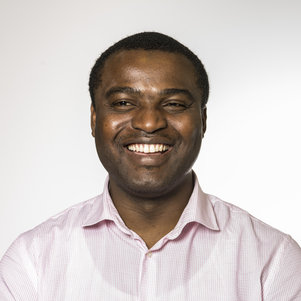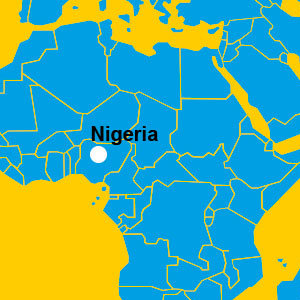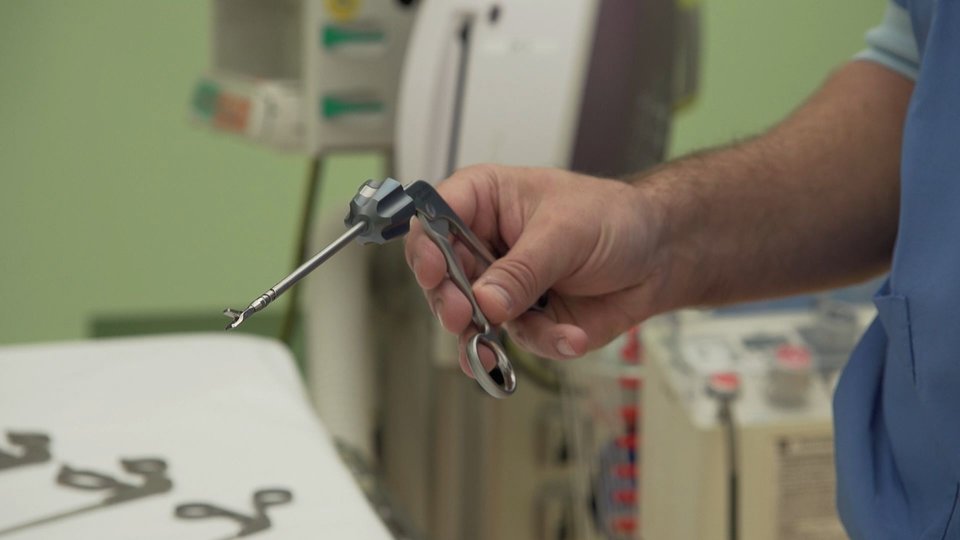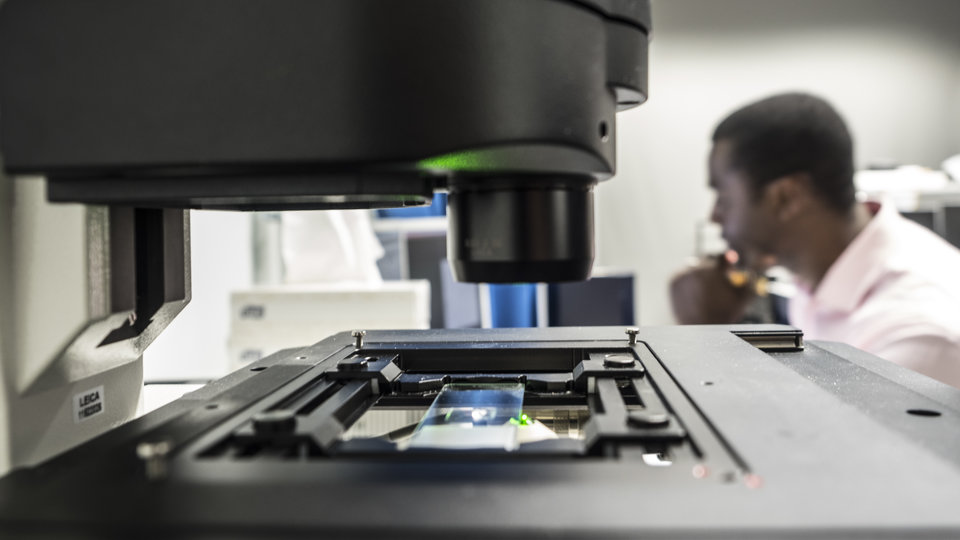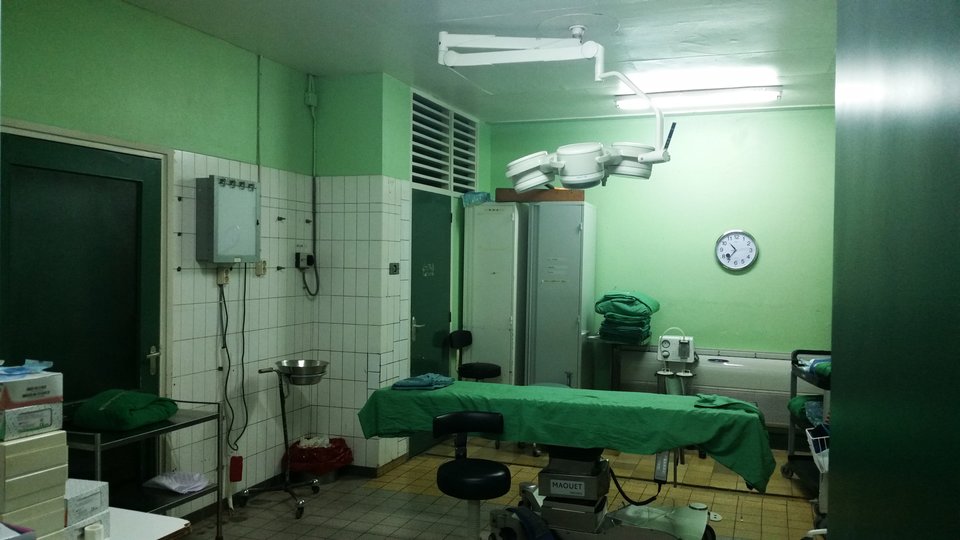How PhD-based entrepreneurship leads to scientific discoveries helping thousands of children in Nigeria
From the Nigerian government to the European Union: the world expresses high interest for dr. Tope Agbana’s innovative diagnostic tools. What started as a PhD project made possible by TU Delft Global Initiative is now changing the lives of many people. “We do science for the benefit of people and it’s working, doors are opening.”

During his PhD and postdoc at TU Delft, biomedical engineer dr. Tope Agbana developed an optical device with integrated AI that detects infectious diseases without extensive training or high-level laboratory infrastructure. Agbana founded start-up company AiDx Medical to help bring his instrument to society. Tools like AiDx Medical’s can be used in low resource settings to screen samples, for example urine or sputum, for diseases such as malaria and tuberculosis. Their most developed instrument is specifically applicable to neglected tropical diseases (NTD’s). It has been field tested for the detection of, for instance, schistosomiasis, an NTD caused by a parasitic worm that affects children’s cognitive ability and can lead to organ damage, bladder cancer and many other health complications. Agbana and his colleagues used the instrument to screen over 15.000 urine and stool samples from school-aged children in Nigeria. “AiDx Medical raised funds to support the treatment of over 1200 infected children. It was a dream come true.”
During his research Agbana worked at Delft Center for Systems and Control (DCSC) at the Faculty of Mechanical Engineering, but designing the diagnostic tool was truly an interdisciplinary team effort. “My group is very good with the heart of the technology, which involves data driven algorithms. We could get the prototyping done so quickly because we worked together with Prof. Diehl and his team from the Faculty of Industrial Design Engineering. In the meantime, Leiden University Medical Center (LUMC) provided us with samples to test our device.” Eventually the collaboration expanded towards the universities of Ibadan and Lagos in Nigeria. “We organised co-creation sessions with Nigerian experts to understand the needs from a local context perspective. The team included doctors, laboratory scientists, public health experts, policy makers, and other specialists.”
Driven by impact
While the diagnostic device goes through certification processes to get it on the market, it can be used by others as an academic research tool. Organisations like NGO’s, academic institutes, and hospitals have expressed high interest to deploy the device for disease control and elimination programs. Just a few weeks ago, Agbana met with the Ekiti State Ministry of Health to validate the results of a diagnostic screening that was conducted in the entire state of Ekiti in Nigeria. “The meeting was a success. The new data from the screening provides insight into the prevalence and focal distribution of the targeted disease in the state. We can also use the data to optimise the performance of the integrated algorithm.” Agbana hopes that the results will motivate local health officials to take action while treatment impact is monitored through the decline of the infection load. “There are so many places where children are suffering because of infectious diseases. When I see those sick kids, it touches my heart. I want to find them and help treating them so that they can go back to school. Because that is what it is all about for me as a biomedical engineer: doing research to help people.”
Agbana realised he is driven by impact in an entirely different setting. Before he moved to Delft, he worked as a manager at a large telecommunication company in Nigeria. “I felt responsible for the people that relied on the phone network. What if there is no service and someone needs a doctor or there is a family emergency?” Agbana decided to go back to academia and get a master’s degree, so that his motivation to make impact happen could thrive. “Moving to Delft was an easy choice as my wife worked and lived here. I was familiar with the Netherlands already.”
During and after his master’s at the TU Delft Microwave Sensing, Signals and Systems group Agbana worked as a junior researcher at DCSC. “I looked around the lab and wondered: what major challenges do Nigerian people face in their daily lives? How do I solve their problems? Malaria came to mind, as there was no affordable and reliable tool available to diagnose the disease early after infection. What if we can make one using the AI technology in my group? I wrote a research proposal and TU Delft | Global Initiative gave me the opportunity to execute it. That is how I started my PhD.”

Entrepreneurship and science
In 2019, Agbana founded AidX Medical with the support of TU Delft | Global Initiative. Not only does the start-up company help with getting the instruments to the people, it also offers research opportunities for TU Delft students. AidX Medical’s activities have high academic values. Through testing in the field and gathering a lot of data, Agbana and his team can improve their algorithms and publish in academic journals. “We always work with a scientific mindset. For example, we screened for a parasite you can only find in stool, but through our instrument we saw this parasite show up in urine samples. This raised questions of course and we decided to follow up with more research, like data analysis and DNA sequencing. We are in the middle of finding out if we made a scientific discovery.”
In the future, Agbana wants to develop a multi-diagnostic tool. “We are working towards a type of ‘shoebox’ solution for multiple disease diagnoses. With just one device, you would be able to look at urine, stool, blood, and sputum, and test for multiple diseases like malaria, tuberculosis, schistosomiasis and other neglected tropical diseases. My goal is to find investors that can help push towards getting our devices to all primary health care centres in Nigeria, Ghana, Morocco, and beyond.”
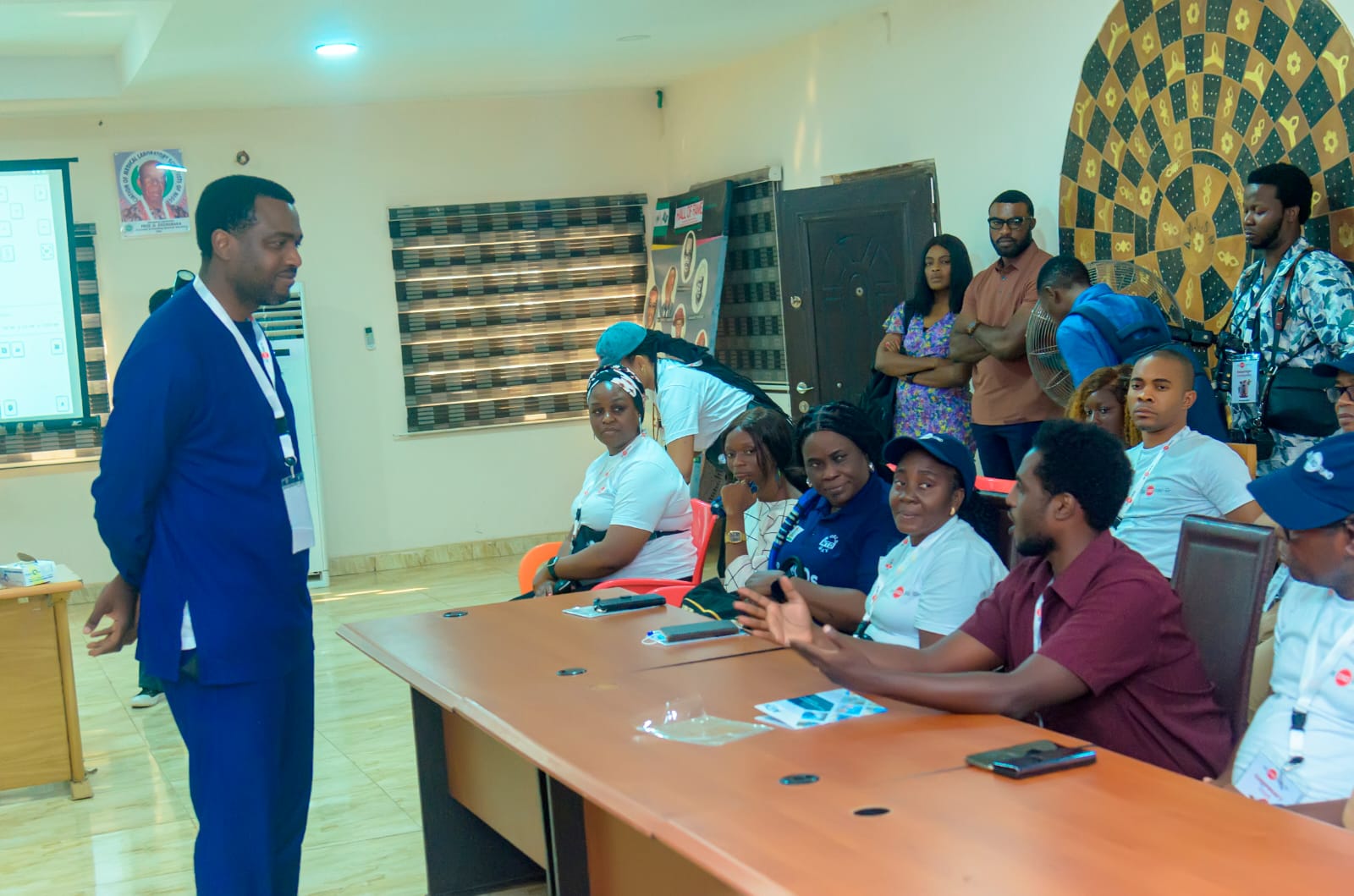
Empowered
What started as a PhD-project, turned into a TU Delft spin-off company, meetings with African governments, and invitations to panels. This month Agbana participated in high-level engagement and discussion with policy makers through a European Union-Nigeria business delegation meeting. “Doors are opening thanks to the TU Delft | Global Initiative team. They really understand the project and have supported us through the years. The team is always ready to give advice, share networks and connect us to important people.”
It makes Agbana happy that research made possible by TU Delft | Global Initiative is now changing the lives of so many people. “The Global Initiative has played a significant role in our start-up and is proud of AiDx Medical and the impact we are making. Their support is of great value to our start-up and others. The team is passionate about doing science for impact. That is why I think it is fantastic that TU Delft | Global Initiative will serve more and more as an interface between the start-ups and the university.”
“Currently there are policies active that are not friendly to the survival of a start-up”, Agbana explains. “Individual interests and biases may also hinder the vision and mission of an impact driven start-up, even though they align well with TU Delft | Global Initiative’s mission. I think it is a good thing that the programme will focus more on mediating between start-ups and the university in the near future.” As an example Agbana mentions business relations that might require a letter of support or other type of commitment from the university. “The Global Initiative team should have even more authority to advise, support, and help accordingly. That way start-ups that pertain to social impact can truly be guided by the TU Delft Global Initiative program.”

